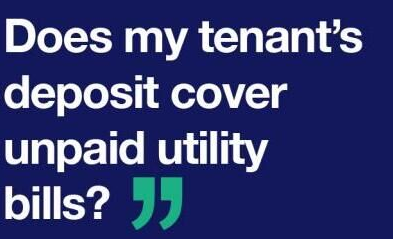What to do when the tenant leaves without paying utility bills?

When a tenant leaves the property without paying utility bills, a landlord can take the following steps:
- Contact the tenant: Reach out to the tenant via phone, email, or letter to remind them of their outstanding utility bills and request payment.
- Send a legal notice: The landlord can send a legal notice to the tenant by registered post with a return receipt. It should clearly mention the purpose of contacting the tenant and the action that can be taken against them if they do not settle the dues within a specified time period.
- File a court case: Despite repeated reminders, if the tenant does not pay the dues within the specified period, the landlord can file a case in court. The landlord must submit evidence showing the tenant’s failure to pay the utility bills. A copy of the legal notice sent to them can serve as proof.
- Get a court order: If the court finds the evidence is in the landlord’s favour, it will issue an order directing the tenant to settle the dues. This order can also serve as a judgment against the tenant, enabling the landlord to recover the unpaid utility dues from the tenant’s assets.
- Follow the court order: If the tenant fails to settle the bill after the court’s ruling, the owner has the authority to implement the court order.
Also read: Renting a house? Understand these tenant rights

What happens if a tenant leaves without paying utility bills?
- If a tenant leaves the property without paying the bills for gas, electricity, water, etc., the utility company can disconnect the services due to non-payment. This can have a negative impact on the landlord in terms of finding new tenants or potential buyers.
- The tenant will be held responsible for paying these expenses even if they have vacated the property. They may have to face legal action.

Are landlords responsible for unpaid utility bills?

Landlords bear no responsibility for unpaid utility bills if the tenant’s name is on the utility account. However, under certain conditions, landlords become responsible for paying the bill amount:
- If the utility accounts are registered in the landlord’s name
- If the rent or lease agreement contains this clause — it is the landlord who will pay all the utility bills.
In a nutshell, landlords must regularly monitor and communicate with tenants regarding unpaid utility bills. They must promptly address any discrepancies and take appropriate action to recover the outstanding utility dues. A rent agreement comes in handy in cases of conflicts, such as unpaid utility bills. It helps ensure clarity for the landlord and tenant.